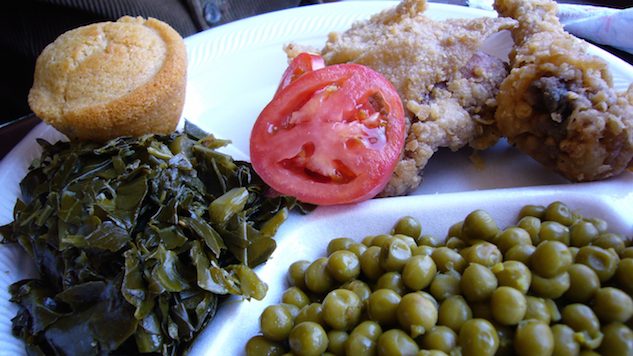6 Culinary Customs from Black Southern Grandmas

My grandmother was raised in Louisiana in the late 1920s. She and my grandfather migrated to Texas in the early 60s chasing economic opportunity. Their transition went well and they successfully acclimated to life in Texas. Despite the move, her beliefs and food customs showed that she was a Louisianan at heart and would always carry that with her. When my grandmother passed away in 2015, a piece of us died with her. The loss of my grandmother shook the core structure of my family.
During our first holiday without her, my aunt made the decision to preserve her legacy by making her famous sweet potato pie. Since then, we have honored several relatives, including another late aunt with food preparation. Southern Black culture is filled with unique food customs and Black matriarchs often start the traditions. These beliefs are not limited to Black Southern culture but they are staples within our community. In honor of the many who have passed on, here is a list of six common food customs and phrases from Southern Black matriarchs.
Don’t Cook in a Dirty Kitchen
There are certain things that a Black matriarch ain’t gonna go for, and cooking in a dirty kitchen is one of them. When I asked my mother “why” cooking in a dirty kitchen is so bad, she wasn’t quite sure. But she told me it was a matter of upbringing and something you just didn’t do.
Is one side of the sink glistening but there are dishes on the counter? Clean ‘em up! Are there streaks or marks in the sink? Rinse it! Scrub it! And Rinse it again! You do not cook in a dirty kitchen. It is important to note that one pot on the sink or a single cluster of crumbs on the floor also count as “dry.” And don’t you dare try to clean just the “dirty” area. Be prepared to do the whole kitchen over!
Wash Food 2 to 3 Times, Even If It’s “Pre-Washed”
For Black matriarchs, “pre-washed” means nothing. They assume, like all other workers in the world, that the person hired to do that job half-assed it. And they’re probably right. In the case of collard greens and pinto beans you might be expected to wash them two or three more times before cooking.
My grandmother bought some “pre-washed” greens that had a big caterpillar on them when I was a child. And of course she never let that memory rest. I don’t know if that was the “beginning” of that custom or not but it sure was the “end” of having an excuse not to.
-

-

-

-

-

-

-

-

-

-

-

-

-

-

-

-

-

-

-

-

-

-

-

-

-

-

-

-

-

-

-

-

-

-

-

-

-

-

-

-








































